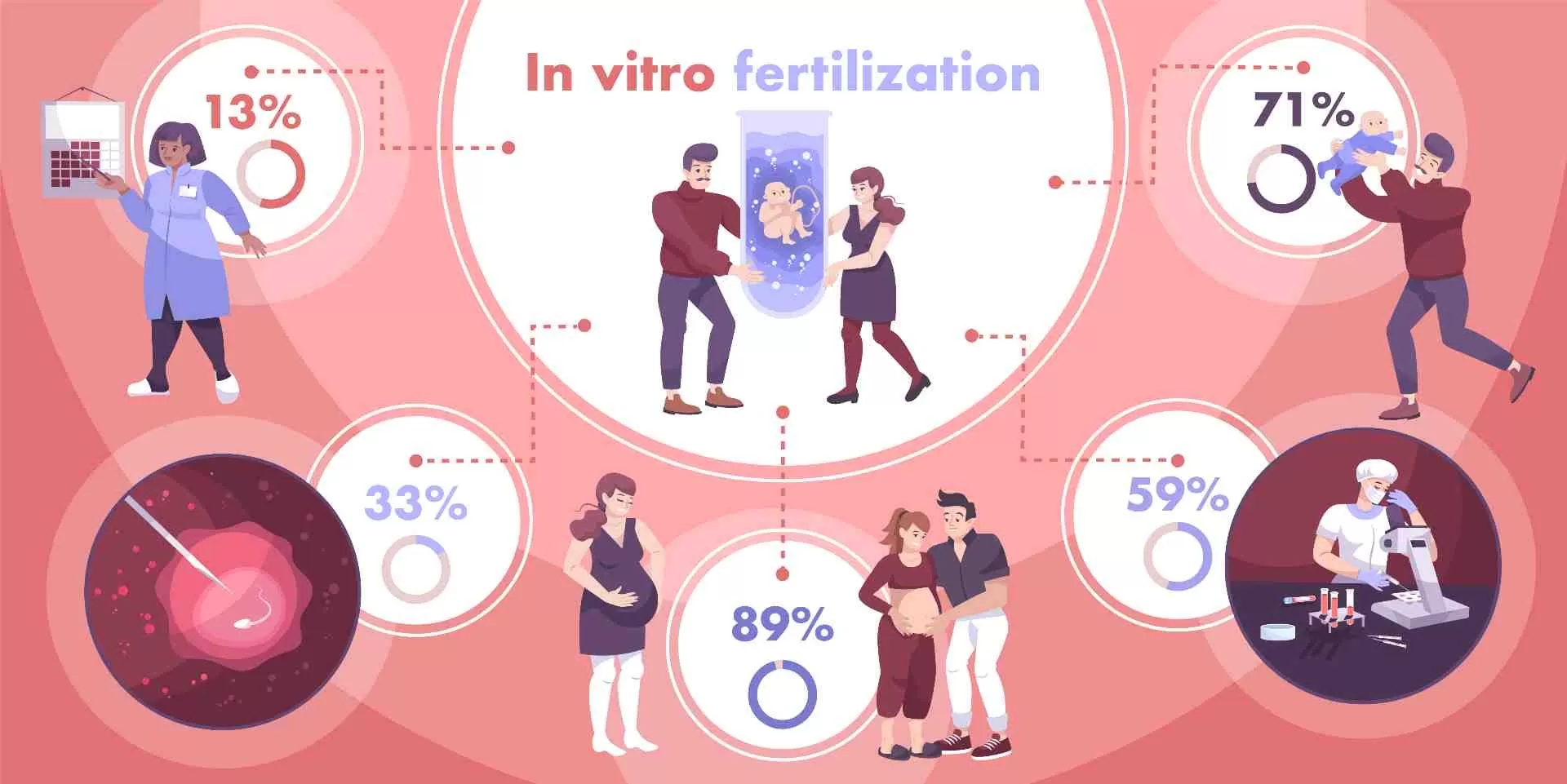Conventional IVF

Innovative Fertility Treatments: Traditional In Vitro Fertilization
We specialize in offering state-of-the-art conventional in vitro fertilization (IVF) treatments at our fertility facility. These treatments are designed to assist individuals and couples in overcoming the problems associated with infertility concerns. We use a holistic approach that incorporates medical knowledge, cutting-edge technology, and individualized care in order to provide each and every patient with the greatest possible opportunity to realize their dream of becoming a parent. In the following, we will discuss the specifics of conventional in vitro fertilization (IVF), including why it is advised, the stages that are required, and how our facility guarantees that our patients have a pleasant and successful experience.
How Does Conventional In Vitro Fertilization Work?
One type of assisted reproductive technology is known as conventional in vitro fertilization (IVF), which involves fertilizing an egg with sperm outside of the body in a laboratory setting that is under strict supervision. The technique of this approach is similar to the natural process of conception, but it provides those who are experiencing difficulties with fertility with better accuracy and assistance. After that, the embryo that was created is carefully implanted into the uterus in order to establish pregnancy. Because of its high success rate and its flexibility to be adapted to a wide range of medical problems, conventional in vitro fertilization (IVF) has emerged as a fundamental component of fertility therapies.
Why Is It Necessary to Involve Conventional IVF?
When individuals or couples are having a variety of reproductive challenges, including the following, conventional in vitro fertilization (IVF) is indicated:
- Tubal factor infertility is characterized by fallopian tubes that are either blocked or damaged, hence preventing eggs from reaching the uterus.
- Infertility caused by male factors might be characterized by a low sperm count, poor sperm motility, or defective sperm architecture.
- Endometriosis is characterized by the growth of uterine tissue outside of the uterus, which impairs fertility.
- Ovulation interference is a symptom of polycystic ovary syndrome (PCOS), which is characterized by hormonal abnormalities.
- Unexplained infertility refers to cases where a specific cause of infertility cannot be identified.
- Recurrent pregnancy loss occurs when a couple has experienced multiple miscarriages.
- Age-related fertility decline is a condition affecting women with a lower ovarian reserve or reduced egg quality.
These problems can be addressed and new hope can be provided to those who are having difficulty conceiving through the use of conventional in vitro fertilization (IVF), which offers precise control over the fertilization process.
How Does the Conventional Method of In Vitro Fertilization Work?
There are numerous distinct steps that make up the conventional in vitro fertilization (IVF) procedure. Each of these stages is meant to increase the likelihood of a successful pregnancy:
The Stimulation of the Ovary
A number of hormonal drugs are administered to patients in order to stimulate the ovaries and cause them to generate numerous eggs during a single menstrual cycle. By doing so, the amount of eggs that are accessible for fertilization is increased, which in turn improves the success rates.The Recovery of Eggs
After the eggs have reached their full maturity, they are extracted from the ovaries using a technique that is minimally invasive and will be carried out under anesthesia. This process guarantees that the collection of high-quality eggs for fertilization causes the least amount of discomfort possible.The Process of Fertilization
Sperm and eggs that have been extracted are brought together in the laboratory in order to facilitate fertilization. This can be accomplished by procedures like intracytoplasmic sperm injection (ICSI), which involves injecting a single sperm directly into an egg. Alternatively, it can be accomplished through more conventional mixing methods.Establishment of the Embryo
In order to guarantee the best possible development, the fertilized eggs, also known as embryos, are closely monitored in a specific environment. After a few days, the embryos that are in the best possible health are chosen for transfer.The Transfer of Embryos
A painless process is used to transfer one or more embryos into the uterus before the pregnancy is conceived. It is desired that the embryo will deposit itself in the lining of the uterus and result in the development of a pregnancy.A Pregnancy Test
The confirmation of pregnancy is accomplished by the use of a blood test around two weeks following the embryo transfer. The process of in vitro fertilization (IVF) has been successfully finished.
Why Us for IVF?
- Experienced Specialists
Our fertility specialists have done several IVF treatments. Their expertise ensures excellent, tailored care. - Technologies
We employ advanced lab and medical equipment for accuracy and outcomes. We get the best outcomes by leading fertility therapy innovation. - Individualized Treatment Plans
Every patient has unique needs. Our treatment plans are customized to make your vacation as enjoyable as possible. - Comprehensive Support
Our experts will help you from your first session to treatment completion and beyond. We prioritize your comfort and well-being to reduce reproductive stress. - We are a partner in your parenthood, not just a reproductive clinic.
During all stages of your journey through the process of in vitro fertilization, we at our clinic are committed to providing treatment that is not just compassionate but also expert. Regardless matter whether you are just beginning to investigate the many possibilities for fertility therapy or are already prepared to get started, the members of our team are here to provide assistance to you during each and every stage of the process. In order to take the next step toward reaching your goal of becoming a parent, we highly recommend that you get in touch with us as soon as possible in order to book a consultation and go forward with the process.
